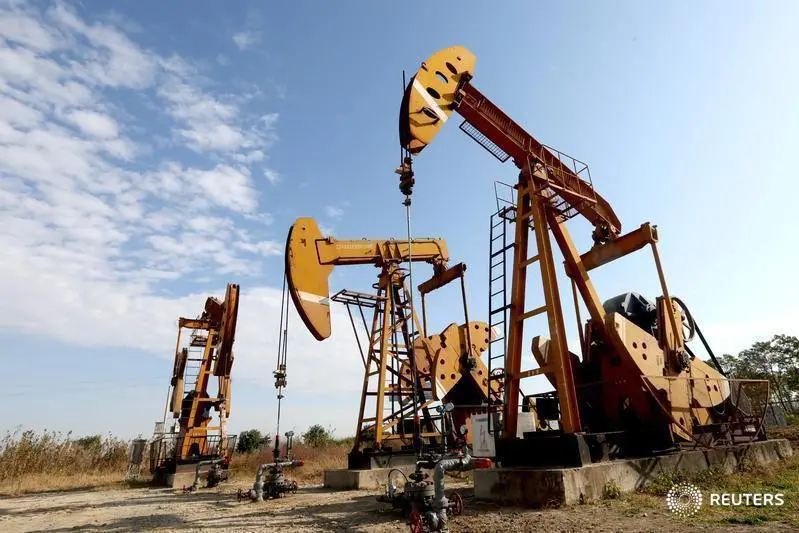PHOTO
SINGAPORE: Oil prices bounced back in early trade on Tuesday, following a more than 1% drop the previous session, as escalating geopolitical tensions in major producing region the Middle East fuelled supply concerns.
Brent crude futures rose 17 cents, or 0.21%, to $82.57 a barrel by 0401 GMT. U.S. West Texas Intermediate crude was up 17 cents, or 0.22%, at $76.95 a barrel.
Both the contracts fell over $1 on Monday as a deepening real estate crisis fuelled worries about demand from China, the world's biggest crude consumer, after a Hong Kong court ordered the liquidation of property giant China Evergrande Group.
"Oil price trading above US$80/bbl is pricing in some geopolitical risk premium again as flare ups continue in the Middle East region. This could fade out within a week or two if there is no strong reaction from the US," said DBS Bank's energy sector team lead Suvro Sarkar.
"If it does worsen into a US-Iran standoff and stricter sanctions, then we are looking at US$80-100/bbl range for oil to sustain for some time," he added.
Washington vowed to take "all necessary actions" to defend its troops following a deadly drone attack in Jordan by Iran-backed militants, the first U.S. military deaths since the Israel-Gaza war began, putting markets on edge.
"If U.S.-Iran tensions escalate, particularly through a direct confrontation, the risk rises that Iran's oil supply is adversely impacted. Iranian's oil exports are likely the most vulnerable via potentially greater enforcement of sanctions," said Commonwealth Bank of Australia analyst Vivek Dhar in a note.
Iran exported 1.2-1.6 million barrels per day of crude oil through most of 2023, Dhar added, representing 1-1.5% of global oil supply.
"How Iran responds to rising U.S. tensions will also dictate the course for oil markets. The key concern is Iran threatening a blockade of the Strait of Hormuz, which sees the transit of 15-20% of global oil supply," he added.
The gains also come ahead of a Federal Reserve rate decision, as the Federal Open Market Committee (FOMC) starts a two-day meeting on Tuesday.
Policymakers are expected to hold interest rates steady, but some investors believe the U.S. central bank could drop its hiking bias. Lower interest rates are positive for oil prices, and could further boost demand.
Markets now expect 47% chance of a Fed rate cut in March, the CME FedWatch tool showed, down from 88% a month earlier.
Meanwhile, U.S. crude oil and distillates inventories were expected to have fallen last week while gasoline stocks were seen rising, a Reuters poll showed.
The American Petroleum Institute industry group will publish U.S. stockpiles data on Tuesday at 4:30 pm EST (2130 GMT), while data from the Energy Information Administration, the statistical arm of the U.S. Department of Energy, is due at 10:30 a.m. EST (1530 GMT) on Wednesday. (Reporting by Emily Chow and Trixie Yap; editing by Miral Fahmy)





















